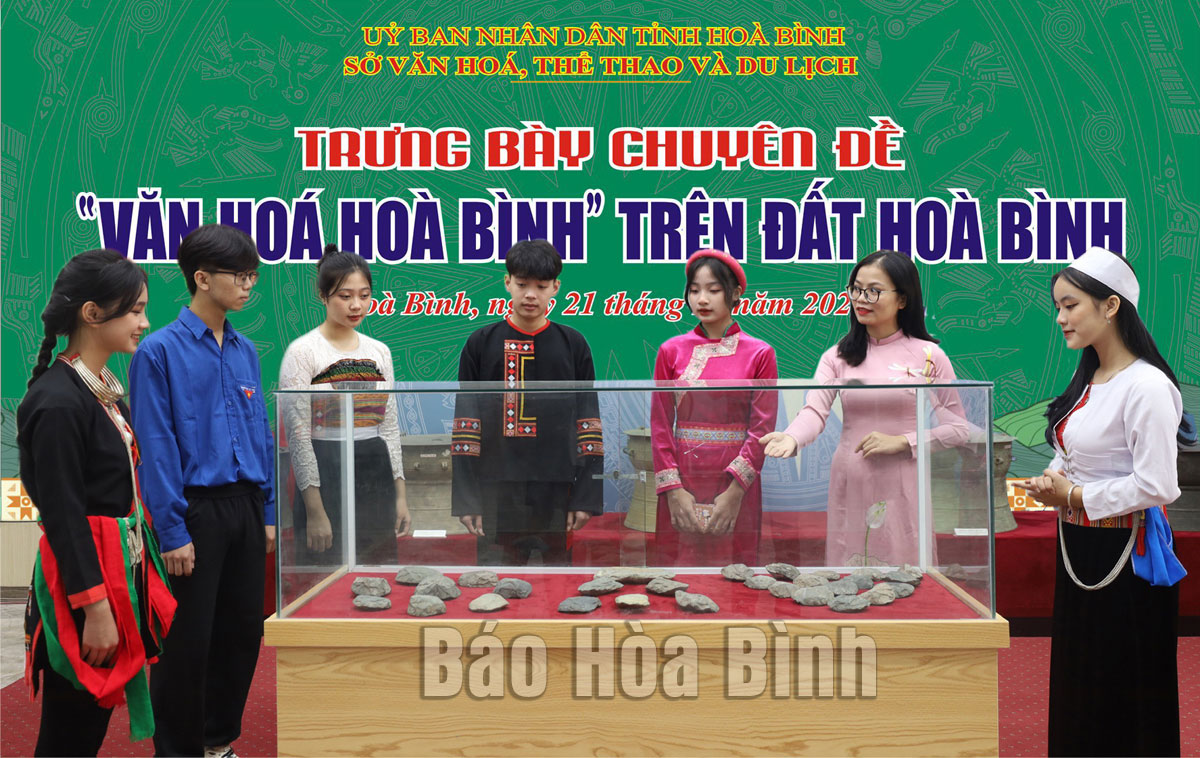(HBO) – Hoa Binh province is an ancient land where limestone mountains lie southeasternwards and create many basins and valleys with rich fauna and flora diversity. Due to these natural conditions, humans in the prehistoric period chose this land to reside, creating a renowned civilisation called "Hoa Binh”.
Students from different ethnic
groups in the province visit an exhibition on the Hoa Binh Civilisation held at
the provincial museum.
Right in the 1920s, archaeologists from the
French School of the Far East paid attention to caves in the limestone mountains
of the area which is now Hoa Binh province. There, they discovered a
civilisation that existed between the late Old Stone Age and the early New
Stone Age.
The one who had the biggest contribution to the
discovery and study of this civilisation was French archaeologist Madeleine
Colani. The civilisation was recognised by international scientists at a
conference on prehistoric studies of the Far East held in Hanoi in 1932. They
agreed to name it "Hoa Binh” as proposed by Madeleine Colani.
The Hoa Binh Civilisation existed not only in
Vietnam but also across Southeast Asia. However, Vietnam is where the biggest
number and most diversity of its vestiges were found, which is also why
international scientists view the country as the homeland of this civilisation.
More than 130 sites dating back to the Hoa Binh
Civilisation have been discovered in Vietnam so far, including over 70 in Hoa
Binh province.
The Hoa Binh Civilisation existed about 30,000 -
7,500 years ago and was an intermediate period between the Old Stone Age (with
the Son Vi Civilisation in Phu Tho province a typical example) and the New
Stone Age (the Bac Son Civilisation in Lang Son province).
The existence of this civilisation not only
proved that Vietnam was one of the cradles of humankind but also provided
domestic and international archaeologists, scientists, and anthropologists with
scientific evidence of the biological evolution from the Homo erectus species
of archaic humans to the Homo sapiens species, as well as the means of living
and social structure of prehistoric humans.
On the occasion of the 90th anniversary of the
world’s recognition of the Hoa Binh Civilisation, the province has organised
many celebratory activities. In particular, the provincial People’s Committee
recently held a national symposium on this topic. Through the event, it hoped
to step up communications to popularise and honour archaeological values of
this civilisation, and express gratitude to Madeleine Colani who discovered and
gave the civilisation its name./.



